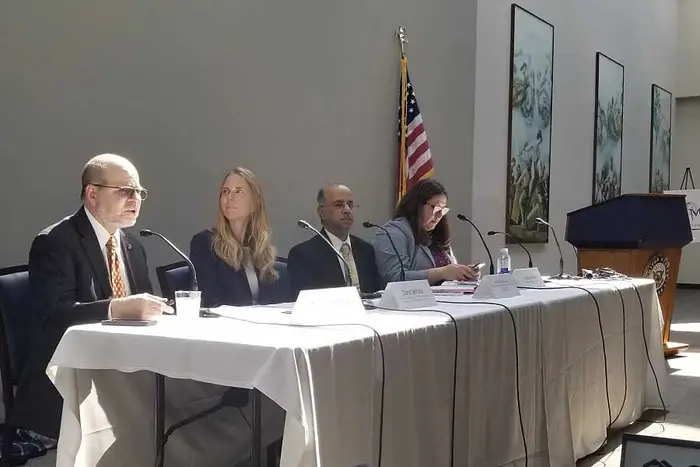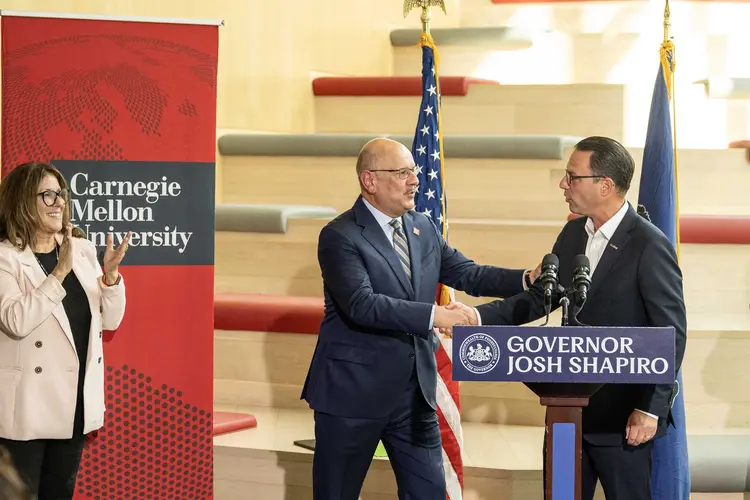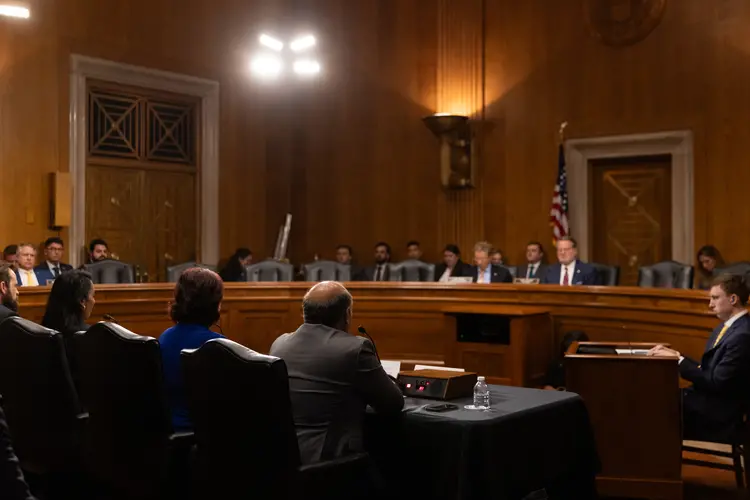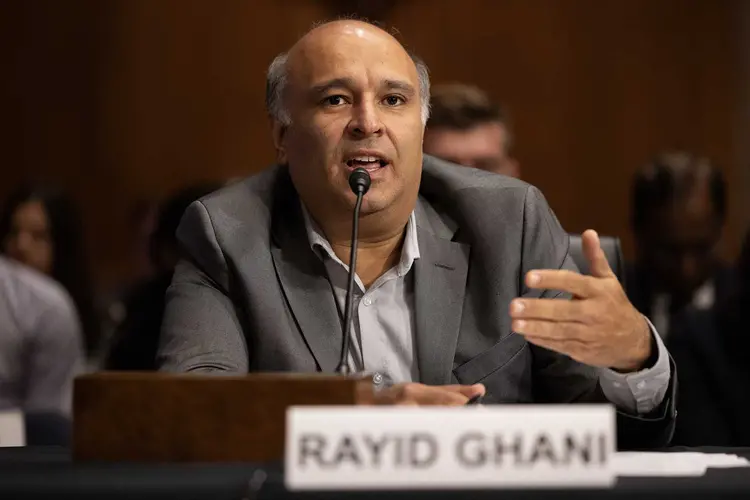Cagan Presents Future of AI-Human Teaming at Congressional Briefing
Media Inquiries
On Sept. 27, Carnegie Mellon University’s Jon Cagan(opens in new window) served as the moderator during a congressional briefing entitled, “AI and National STEM Workforce Development Needs,” at the Hart Senate Office Building in Washington, D.C.
The panel conversation, organized by the American Society of Mechanical Engineers, the Institute of Electrical and Electronics Engineers, and the Senate AI Caucus, focused on opportunities and challenges regarding artificial intelligence and machine learning in the workforce, including technology development, training and education.
Cagan, professor and head of CMU’s Department of Mechanical Engineering(opens in new window), talked specifically about AI-human collaboration and the impact AI has on team dynamics.
“AI is already having an impact in engineering practice and is here to stay.” — Jon Cagan
“AI can be a tool, a partner, and a guide for engineering teams,” Cagan explained. “For example, we’ve found that AI-guided teams substantially improve their problem-solving process, resulting in significantly better outcomes. They enable people to think and act more strategically. At the same time, AI has limitations, and engineers need to understand what AI is, how it works, and when it works well.”
Cagan was joined on the panel by Diana Gehlhaus, the senior adviser for talent at the U.S. Department of Defense Chief Digital and Artificial Intelligence Office; Karthik Ramani, the Donald W. Feddersen Distinguished Professor of School of Mechanical Engineering at Purdue University; and Yelena Vaynberg, governmental and regulatory affairs executive at IBM.
The session discussed the importance of AI tools for workforce development and resources to advance U.S. competitiveness in AI-enabled technology applications across industries.
Cagan underscored that resources need to be allocated to both training engineers, and research and development in AI engineering. He noted the importance of AI-centric engineering degree and certificate programs like those newly offered(opens in new window) by the College of Engineering(opens in new window).
“AI is already having an impact in engineering practice and is here to stay,” Cagan said.
More about Cagan
- Four CMU Faculty Members Named 2022 AAAS Fellows (opens in new window)
- Automating Engineering's Ideal Manager (opens in new window)
- Bringing Students into the Next Industrial Revolution (opens in new window)
- American Society of Mechanical Engineers Honors Cagan (opens in new window)
- AI Learns to Design (opens in new window)




